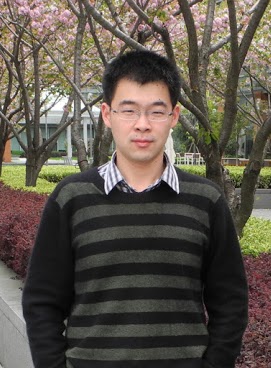Sampling from the Potts Model on Random Regular Graphs
Speaker
Kuan Yang, University of Oxford

Time
2018-12-26 16:00:00 ~ 2018-12-26 17:00:00
Location
Room 3-318, SEIEE Building
Host
Chihao Zhang
Abstract
In this talk, we consider the problem of sampling from the Potts model on random regular graphs It is conjectured that sampling is possible when the temperature of the model is in the so-called uniqueness regime of the regular tree, but positive algorithmic results have been for the most part elusive For all integers q >= 3 and Delta >= 3, we develop algorithms that produce samples within error o(1) from the q-state Potts model on random Delta-regular graphs, whenever the temperature is in uniqueness, for both the ferromagnetic and antiferromagnetic cases The algorithm for the antiferromagnetic Potts model is based on iteratively adding the edges of the graph and resampling a bichromatic class that contains the endpoints of the newly added edge Key to the algorithm is how to perform the resampling step efficiently since bichromatic classes can potentially induce linear-sized components To this end, we exploit the tree uniqueness to show that the average growth of bichromatic components is typically small, which allows us to use correlation decay algorithms for the resampling step While the precise uniqueness threshold on the tree is not known for general values of q and Delta in the antiferromagnetic case, our algorithm works throughout uniqueness regardless of its value In the case of the ferromagnetic Potts model, we are able to simplify the algorithm significantly by utilising the random-cluster representation of the model In particular, we demonstrate that a percolation-type algorithm succeeds in sampling from the random-cluster model with parameters p,q on random Delta-regular graphs for all values of q >= 1 and p
Bio
Kuan Yang is a Ph.D. student in University of Oxford. He is interested in many aspects of theoretical computer science, discrete probability and combinatorics.

